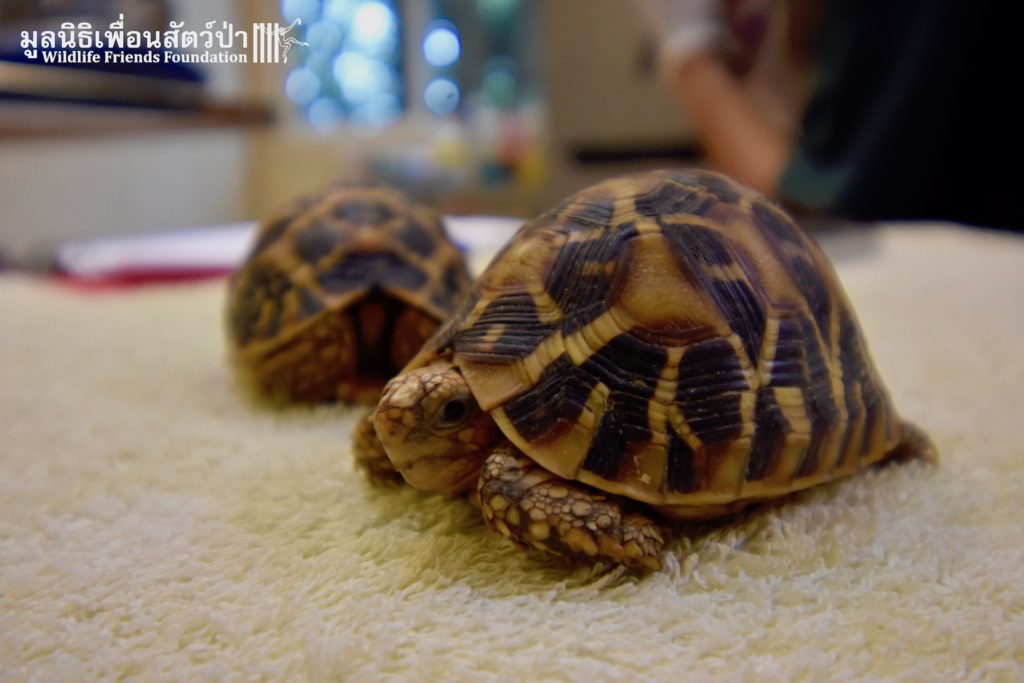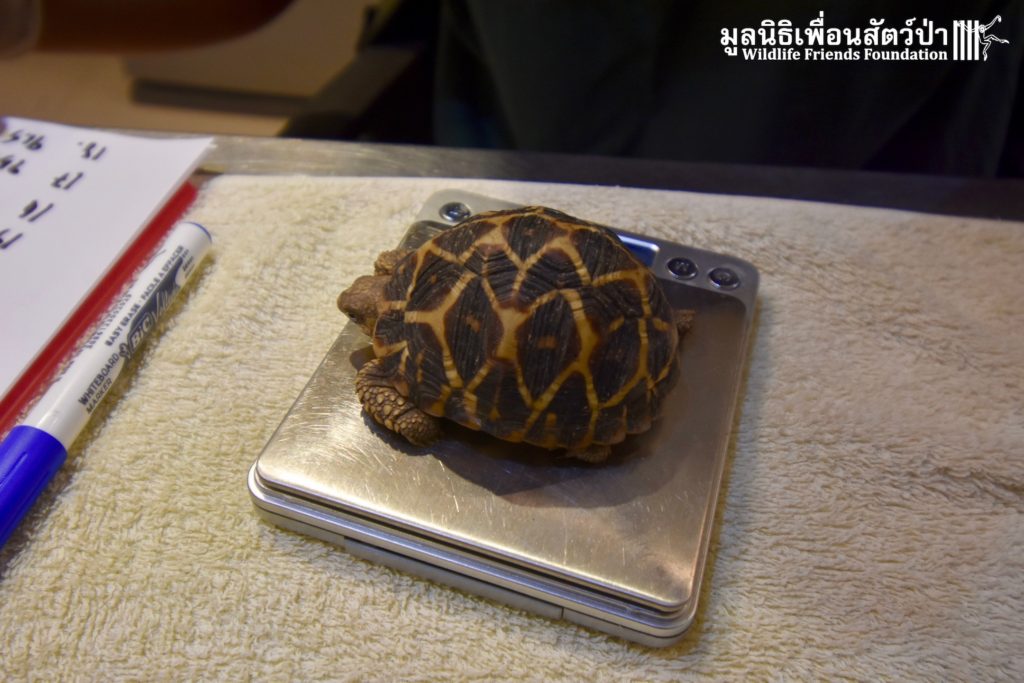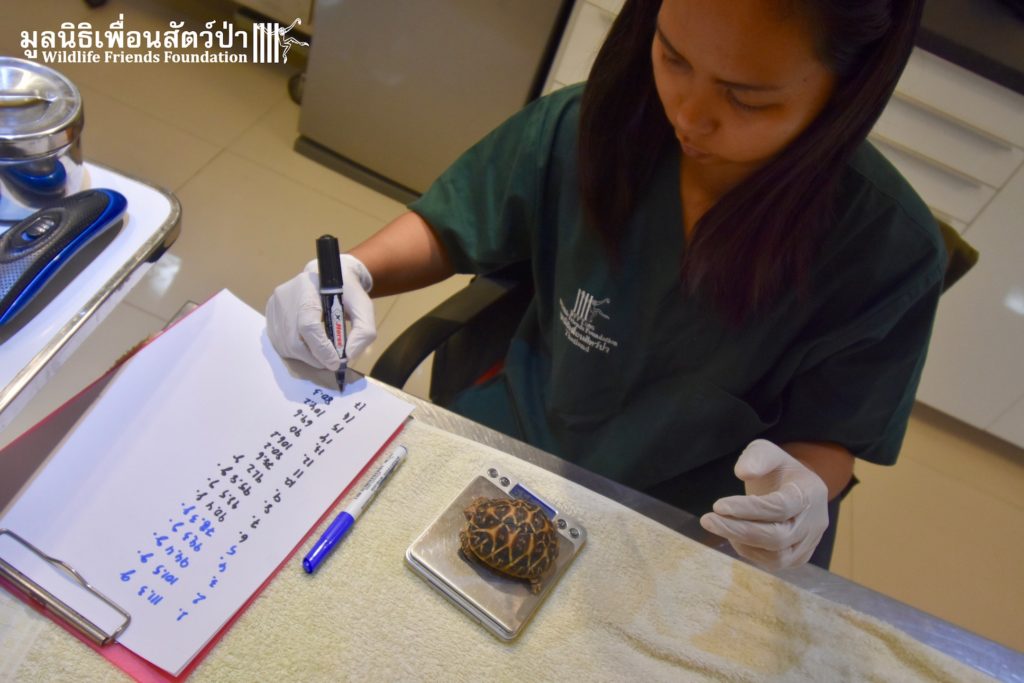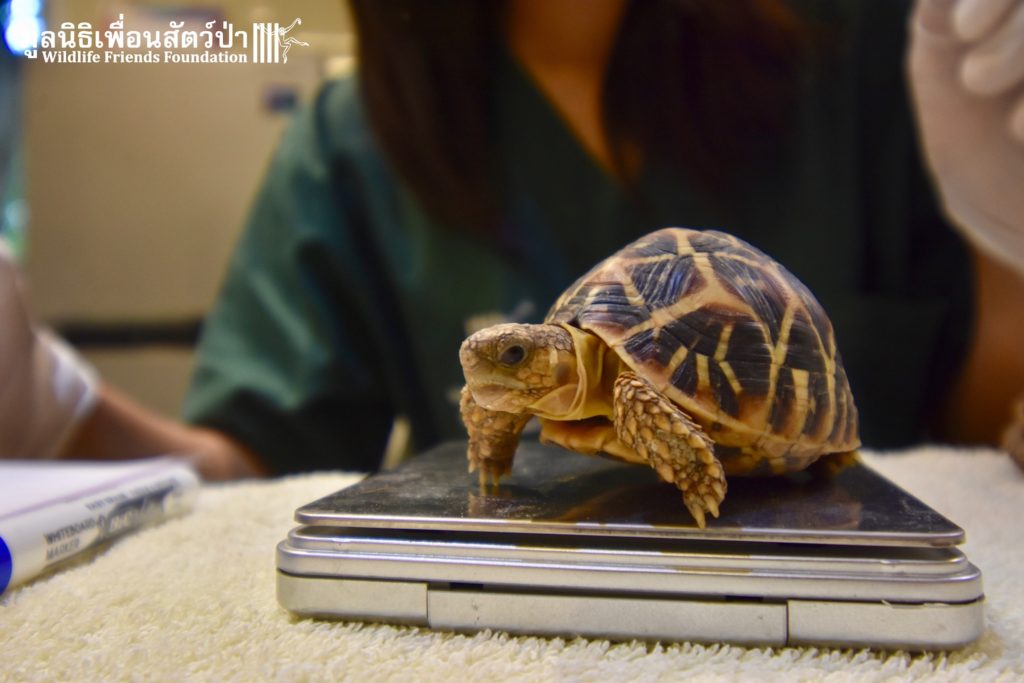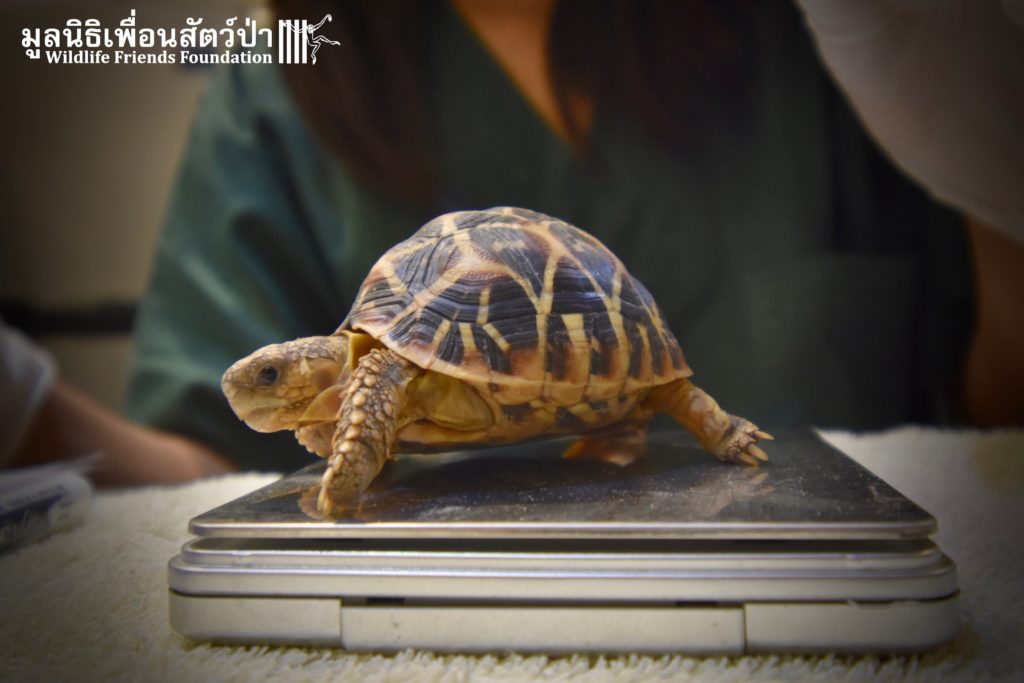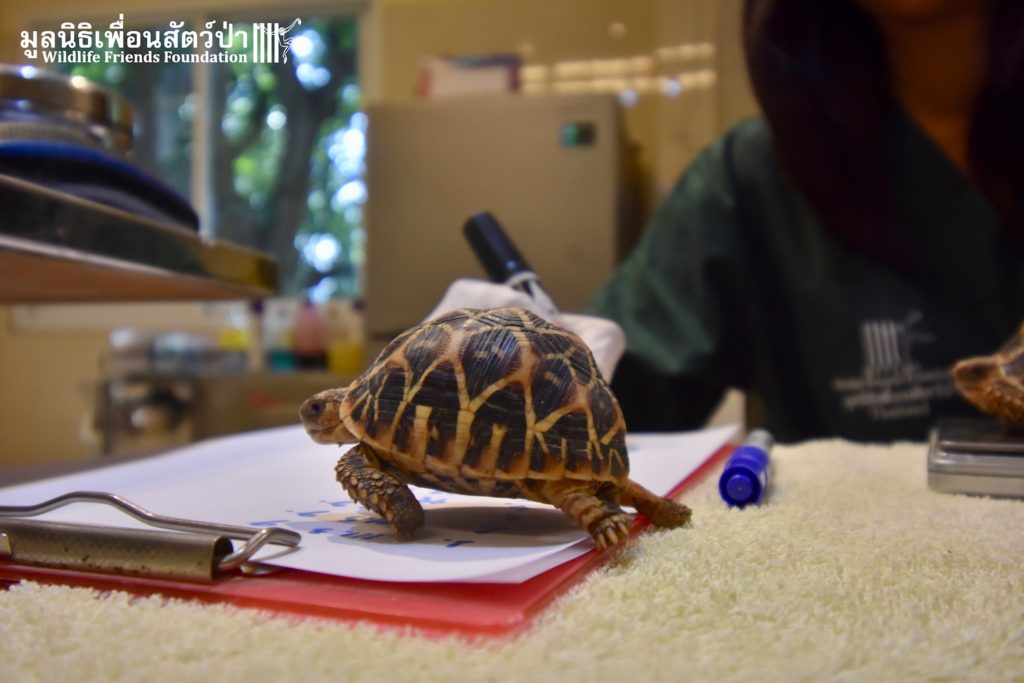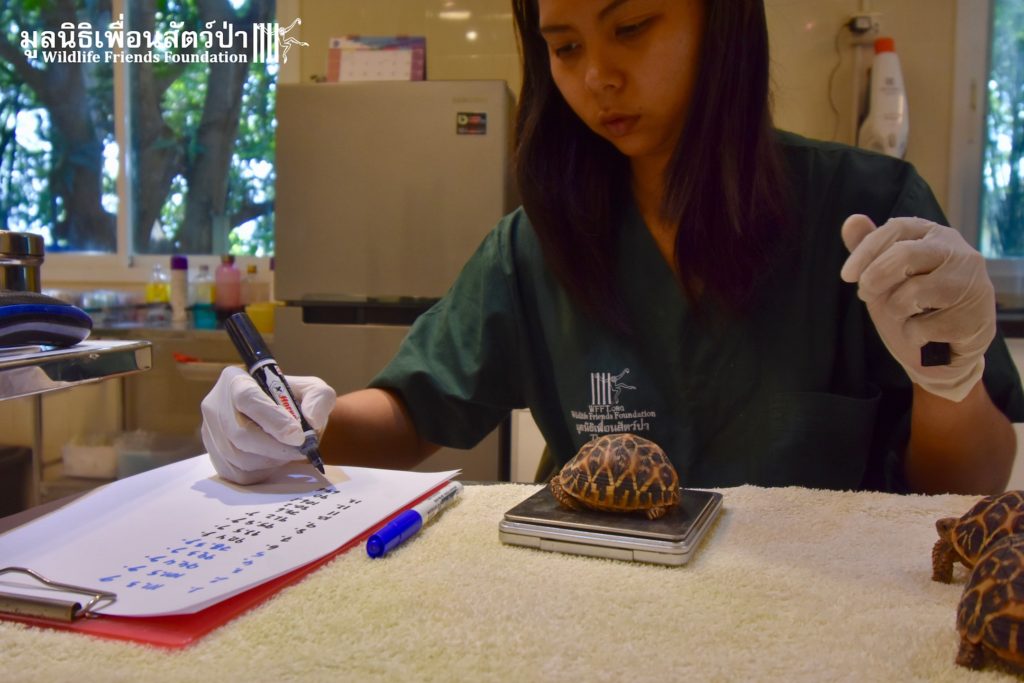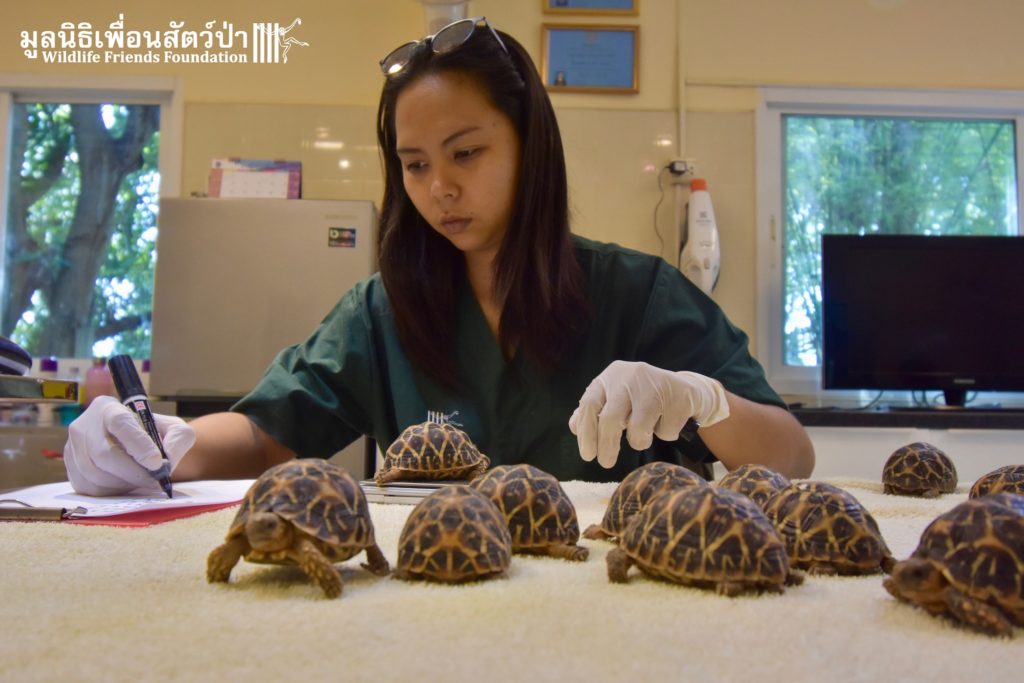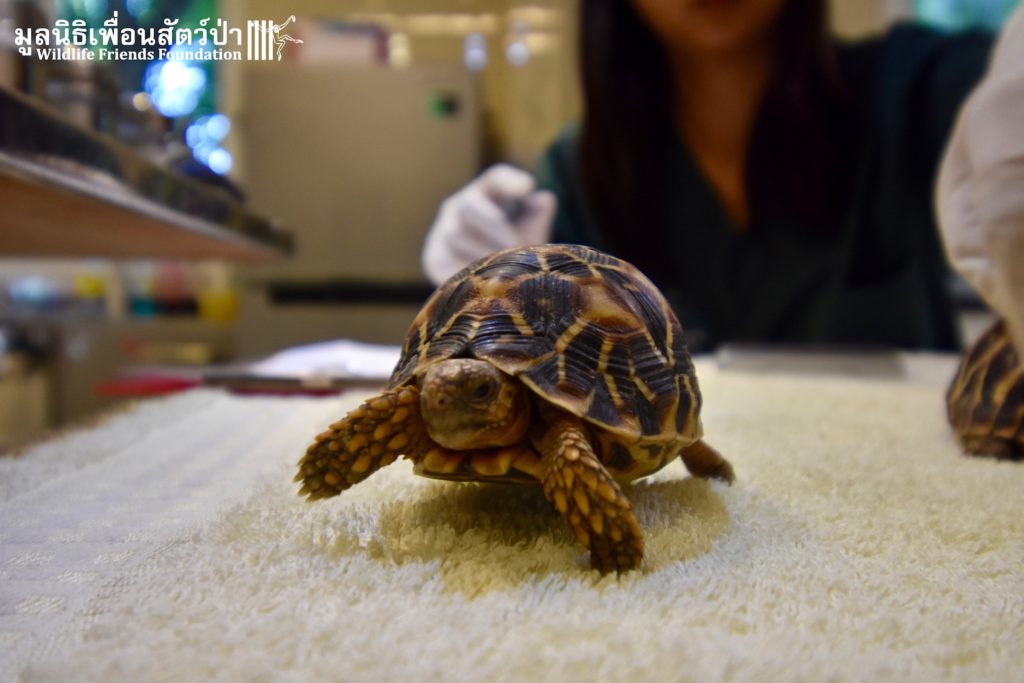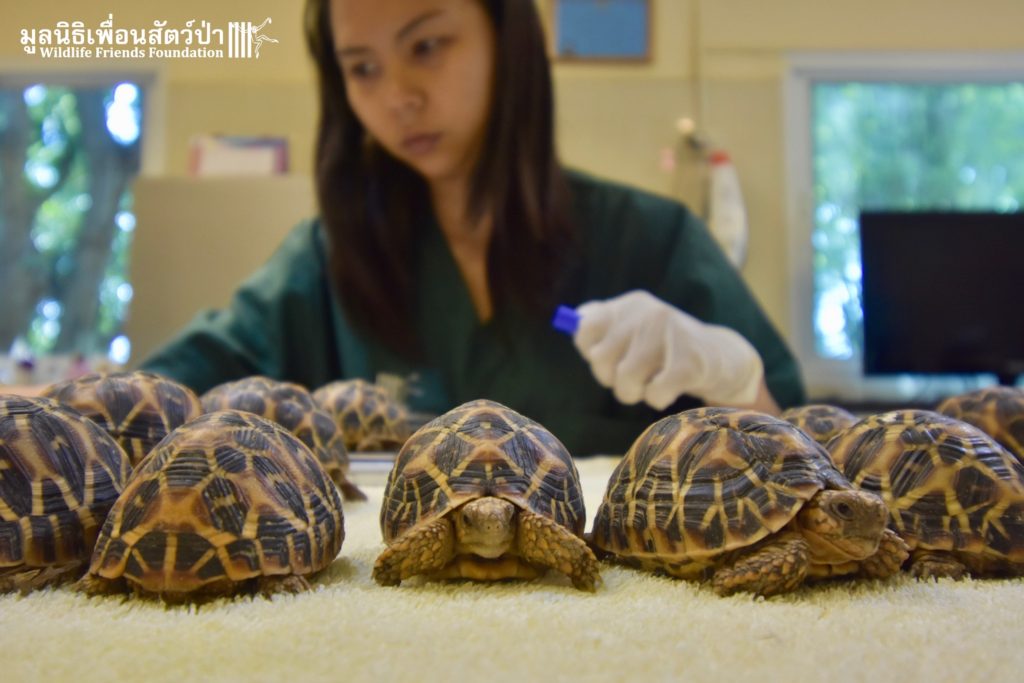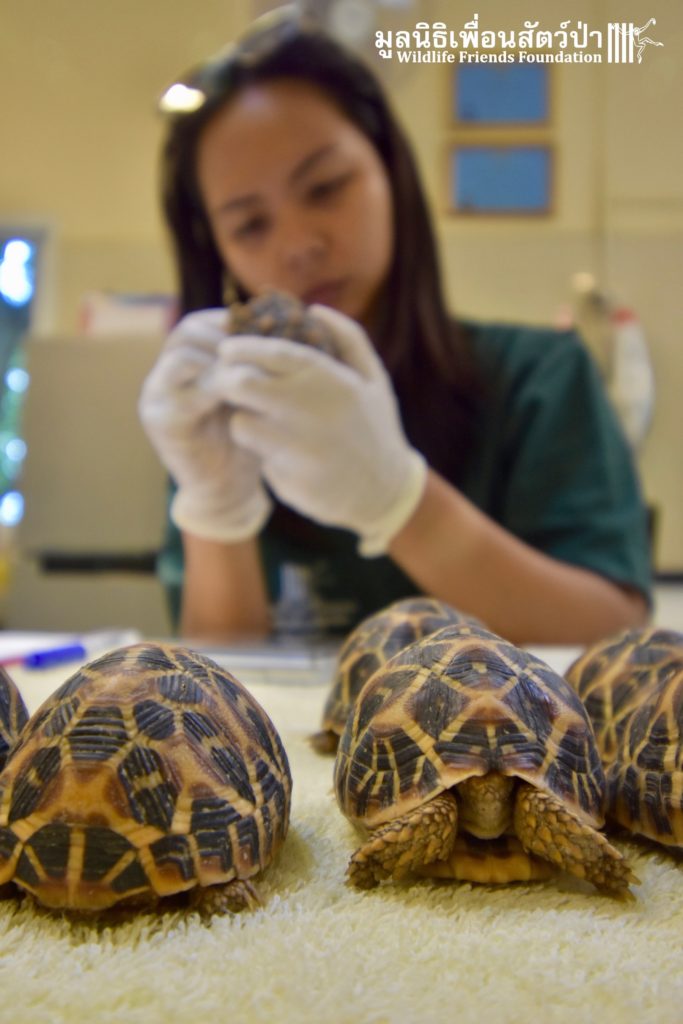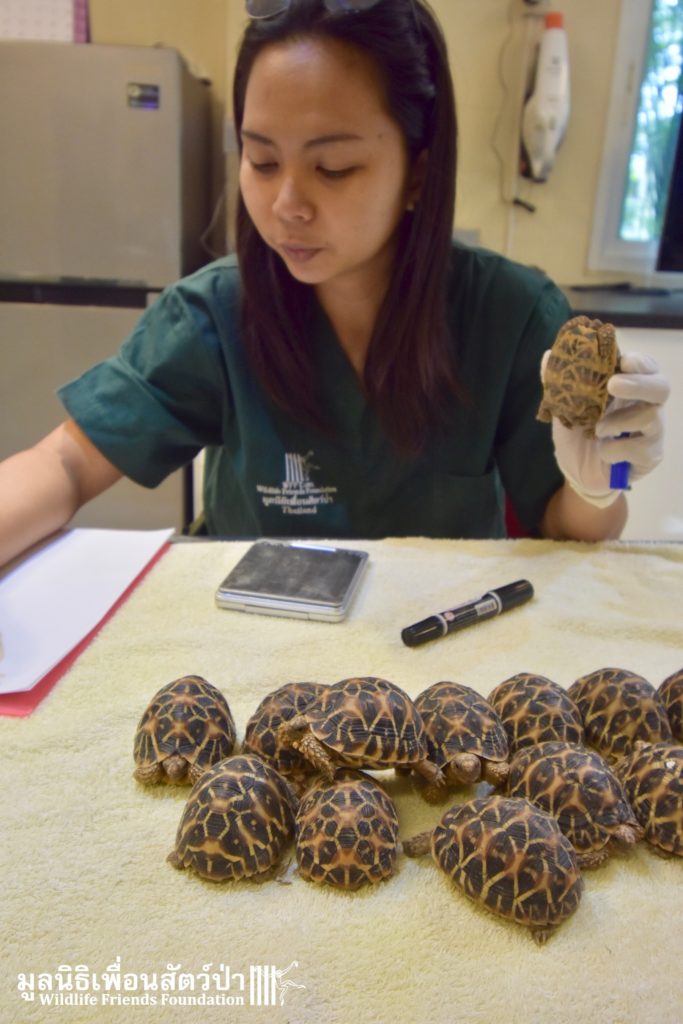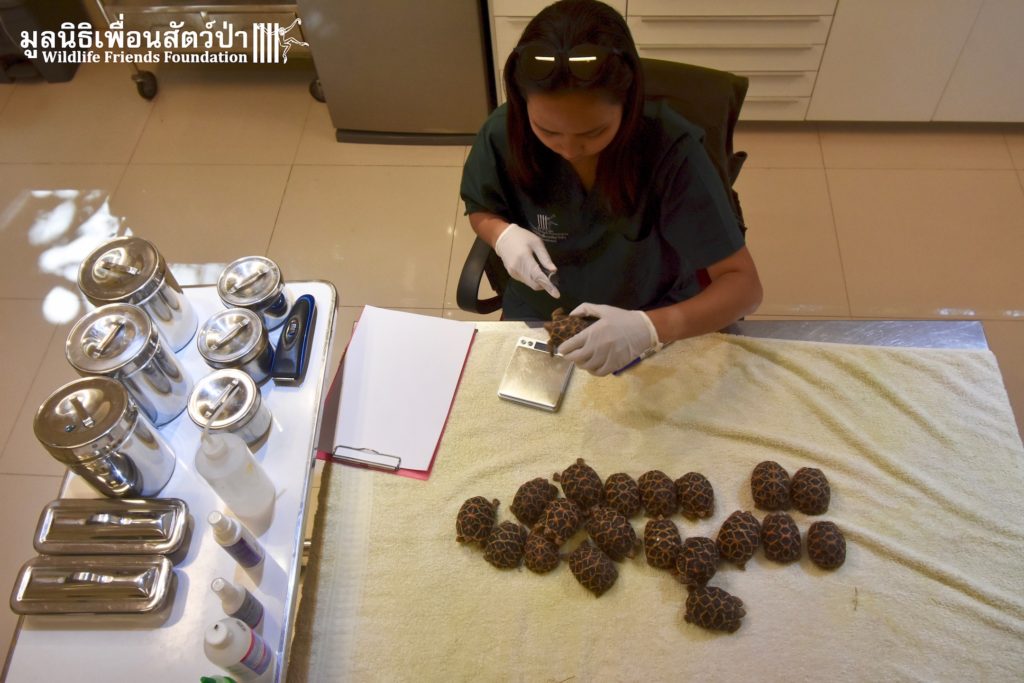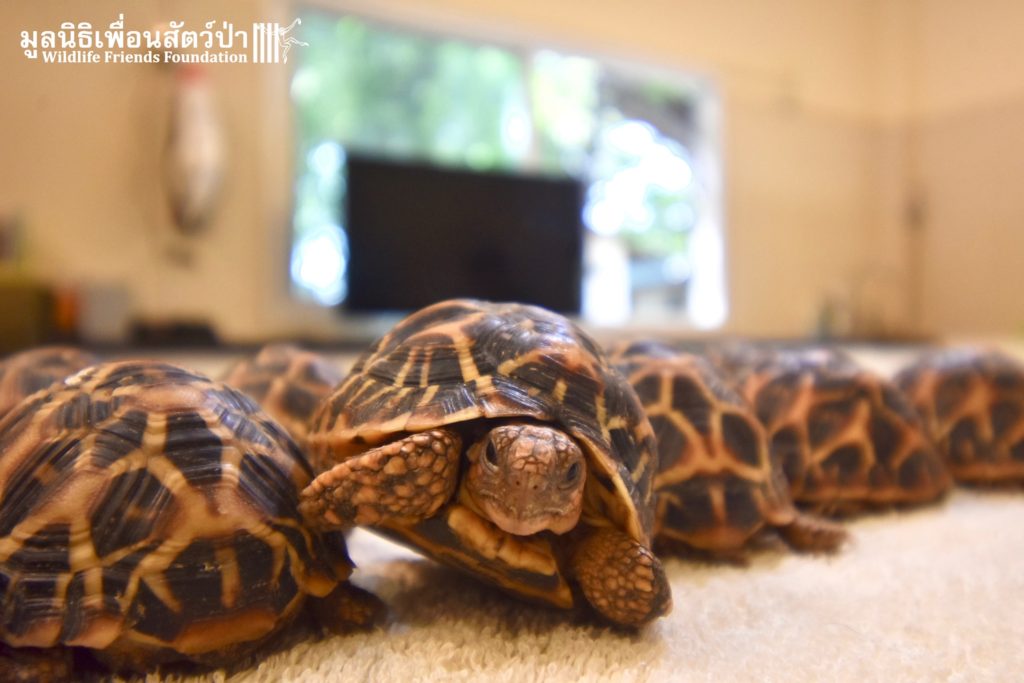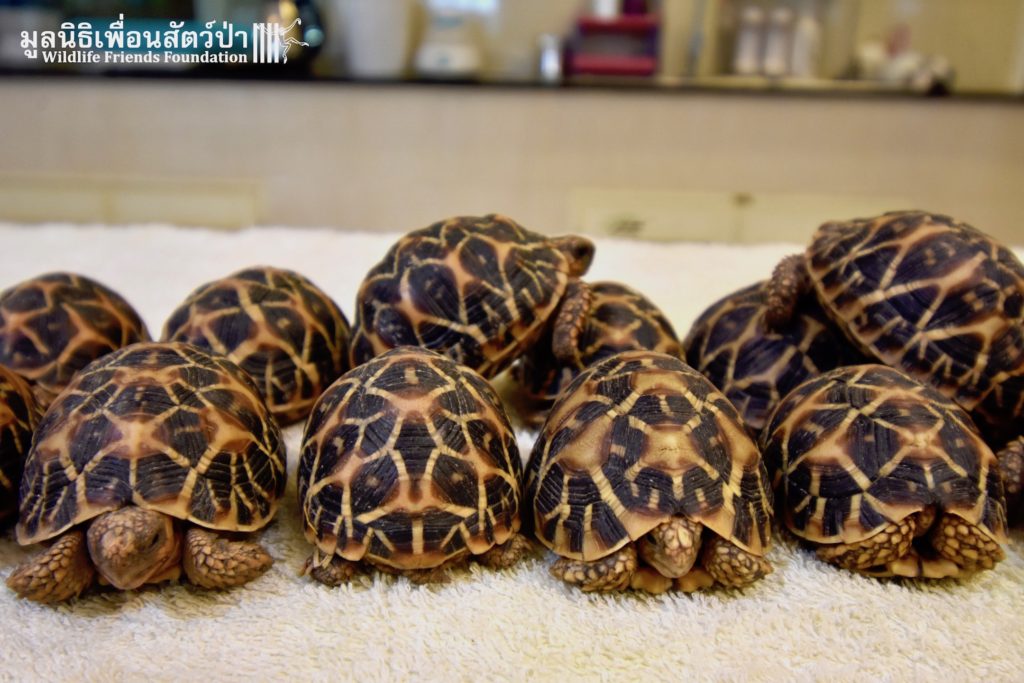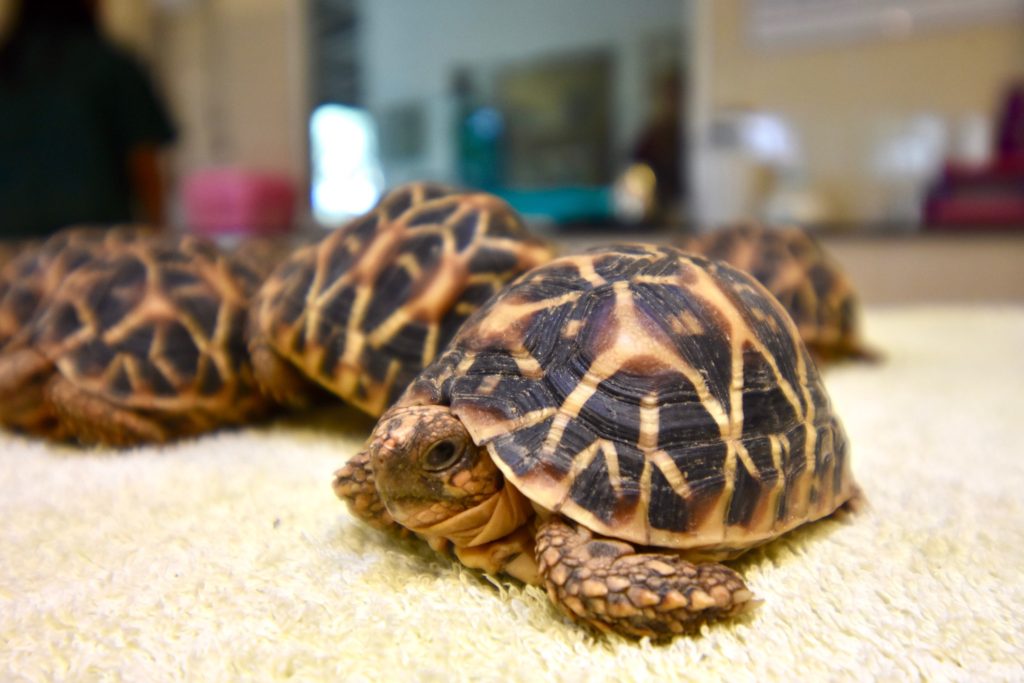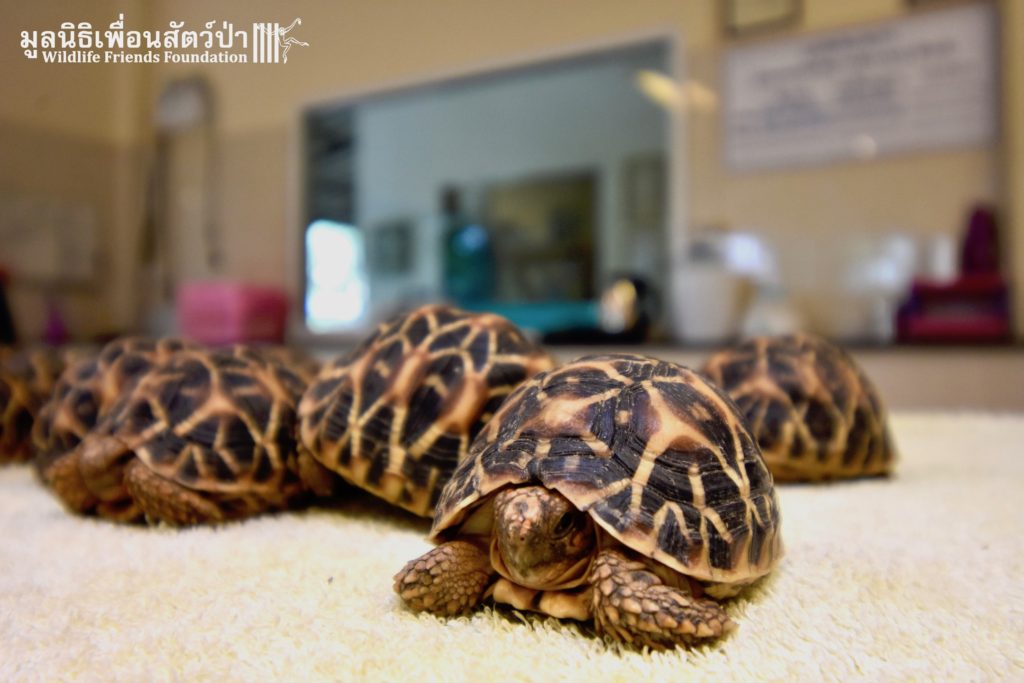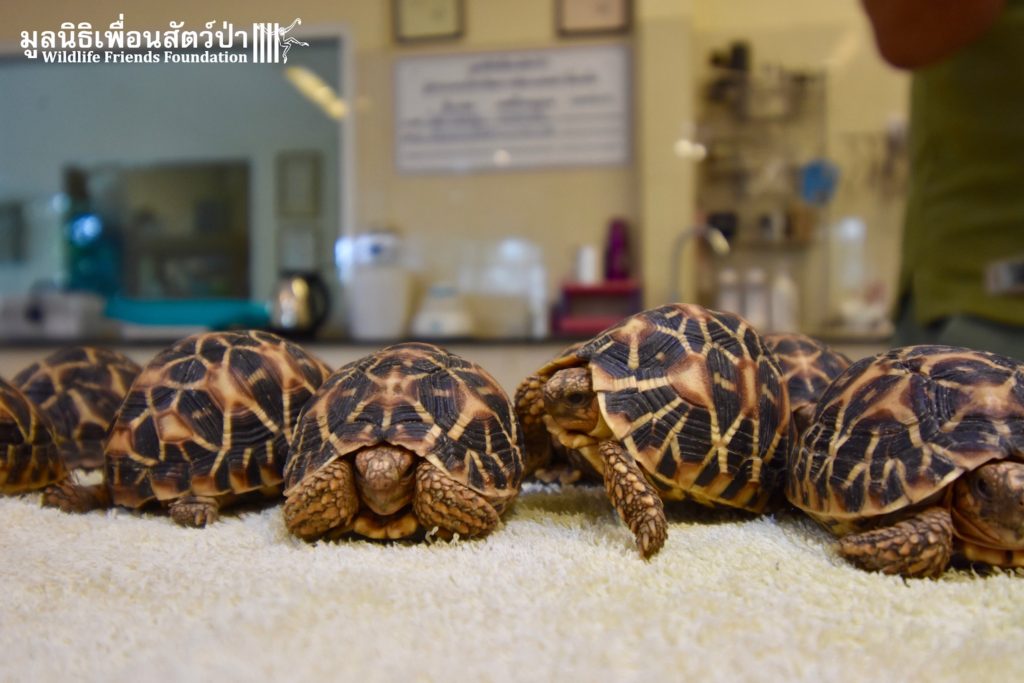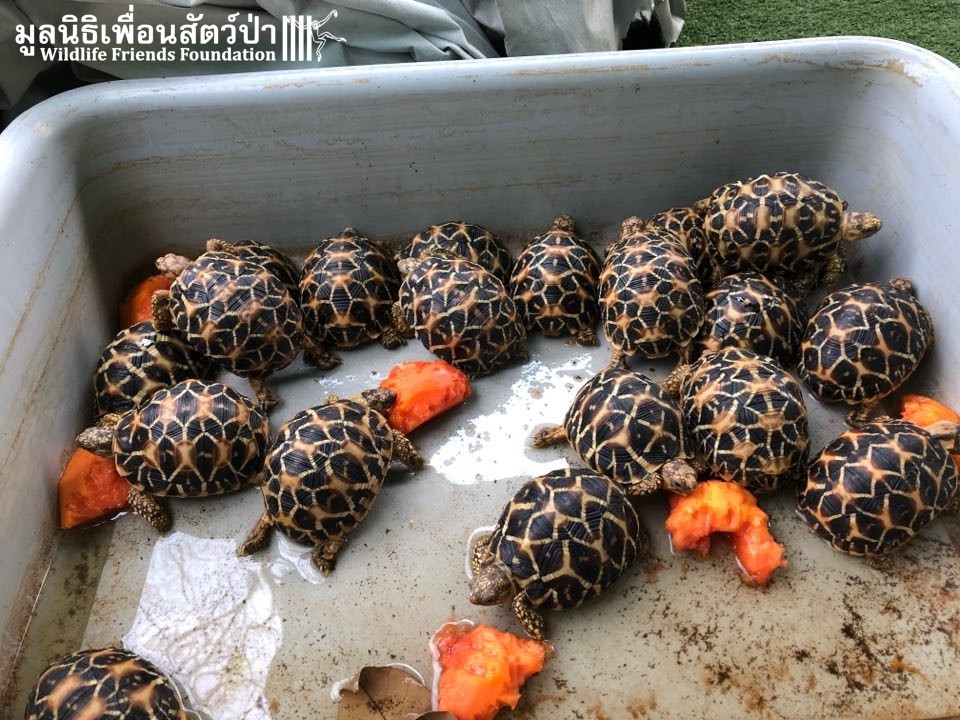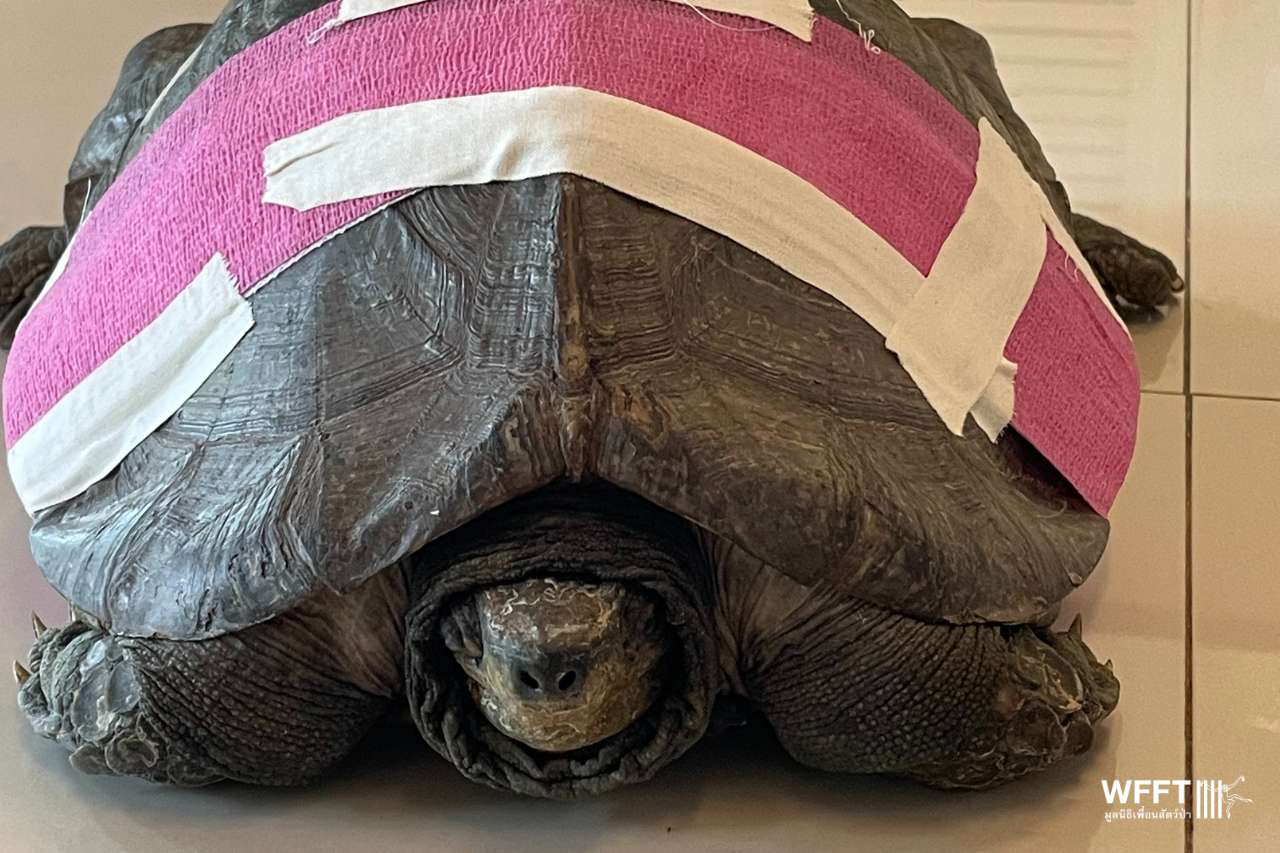Baymax was hit by a car and suffered terrible injuries. Thankfully, he recovered after a long rehabilitation. Watch him go back to the wild!
Endangered Star Tortoises Dumped at a Temple
A few days ago the WFFT Rescue Team headed north to Bangkok to check on a report from a monk who had found a box full of tortoises dumped at a temple. Upon arrival the team found 20 rather small infant Indian star tortoises (Geochelone elegans). We were told that they had been found in a box inside the temple grounds. We do not know the exact reason why they were dumped but luckily for them the monk decided to seek help.
In Thailand unwanted animals are frequently dumped at temples, even wild animals that were previously kept as pets are also abandoned at temples once they become a burden or threat to their “owners”. WFFT regularly receives complaints from concerned individuals who seek help for animals they have seen at temples. Just this week we have had complaints about macaques, gibbons and crocodiles all being kept at temples in terrible conditions. Temples are not the best place to keep wild animals, they are often unable to provide proper husbandry, medical care and correct nutrition to the animals. In some instances, such as the Tiger Temple these animals are abused and used to make a profit. Although most temples try their best to provide good homes for the animals unfortunately this is often not possible.
The Indian star tortoise is listed as Vulnerable (VU) to extinction by the IUCN Red list of Threatened Species. Recent studies have shown a huge increase in trade of this species to meet the huge international demand to keep them as pets. Since 1975, this species has been included on Appendix II of CITES. Consequently, international trade in specimens can take place if the correct permits are acquired. A recent conservative estimate of the annual international pet-trade export is 10,000 to 20,000 animals.
It is thought that this species is being illegally smuggled from India into pet markets in Asia, Europe, and the United States. However, the majority of animals appear to be kept as exotic pets in Asian countries, such as Thailand and China. The illegal collection of at least 55,000 (mostly juvenile) wild tortoises from just one location in India over a period of just a year. Extensive conversion of their natural habitat to less suitable agricultural land will reduce populations further. They were the most frequent illegally traded tortoise seized by Thai authorities between 2008 and 2013 (5966 individuals – 15 cases) and is the most commonly seen tortoise at the infamous Chatuchak Weekend Market in Bangkok, Thailand.
There are concerns that the current legislation in many Asian countries is being exploited to facilitate the illegal trade. For example, as with all non-native species they are not protected under Thailand’s Wild Animal Reservation and Protection Act (WARPA). It is near impossible for enforcement authorities to distinguish illegally traded wild sourced individuals from those that have been legally bred in captivity.
These little tortoises are some of the lucky ones. They are now living at the WFFT Wildlife Hospital under the close supervision of the vet team. We are in the process of creating a specialized habitat where they can walk on grass, bask in the sun and cool off in a pool Updates will follow soon. Keep Wildlife Wild and Not as Pets.

